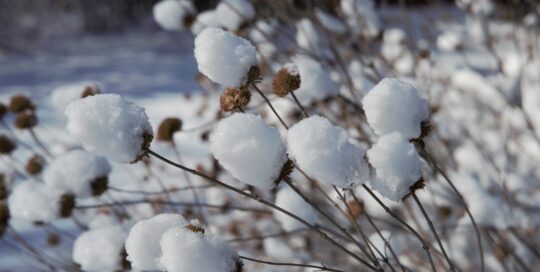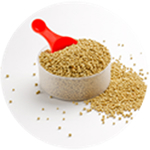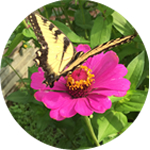Four Reasons to Leave Your Leaves for Wildlife This Fall
Views: 318
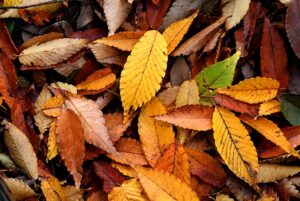
Fall is here, and thankfully our afternoon temperatures have fallen into the high 80s from the 90s and 100s. It’s a good break for plants suffering from extreme drought, which mine are. We even had our first freeze, so all my tender perennials are stashed away in the greenhouse for winter. (The trick will be to keep them from burning up in the hot afternoons for a while.) But fall, yes, fall is technically here, and eventually our trees will start shedding their leaves, due to the season or drought or a combination of both. I don’t plan to do any raking and bagging this fall, and there are several reasons you shouldn’t either if you like supporting wildlife. Here are four major reasons to leave your leaves this fall:
- Helping insects, like pollinators
- Providing weed suppression
- Recycling nutrients
- Helping birds and other wildlife
Helping Insects
I’ve put this at the top of the list because I think this is something many people miss: leaves are critical for the survival of many beneficial insects. Take the Red-Banded Hairstreak, for example. The females lay their eggs on oak leaves. When the caterpillars emerge, they eat the oak leaves. If you rake your leaves and bag them, you destroy that entire life cycle.
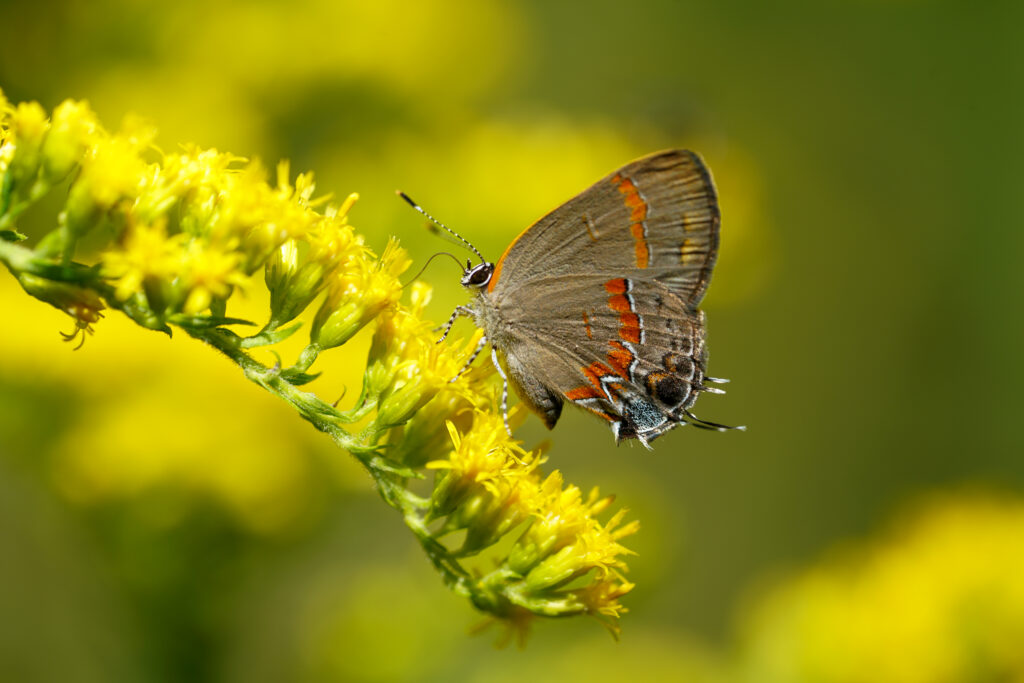
A Red-Banded Hairstreak. These little beauties are dependent upon oak leaves for their life-cycle.
There are many, many other examples of insects that need leaves to survive, from bumble bee queens that need leaf insulation to protect them from the winter cold to swallowtails whose chrysalises look like leaves and may be hidden in the leaf litter. Most native insects do not migrate like monarchs. They overwinter in our yards and gardens, and they need leaves to survive.
Weed Suppression
If you’ve ever cursed your leaves for killing all the grass under your trees, you already know this truth: leaves are great for suppressing weeds. If you don’t like leaves in one place, then move them somewhere they can work for you: between plants in your flower beds; in that empty space you plan to plant, but aren’t sure what to put there right now; in the corner of your yard where you hate weed eating, or under the tree that isn’t quite mature yet, and you want to keep the grass away to prevent the grass from hindering its growth. There are lots of areas where you might need a little weed-suppressing mulch.
The Nitrogen Caveat
There is a caveat to using leaves to suppress weeds. You can create too much of a good thing. With a heavy leaf mat, it’s possible to cause nitrogen deficiency due to the microbial action of decomposition. If you’re using your leaves to mulch a flower bed or vegetable garden, young or new plants without deep roots, in particular, may not get the nitrogen they need to grow and develop. Keep your eye out for yellow and/or spindly plants; this may indicate you have a nitrogen problem. This problem is easy to correct by simply breaking up the leaf mat and applying some plant food or fertilizer.
Nutrient Recycling
Leaves are full of nutrients. Letting them break down and decompose is the best way to ensure your environment doesn’t lose all those nutrients. Leaf mulch and leaf composting have created the richest soil I have. Good soil is full of microorganisms that need the nutrients leaves provide. In essence, if you leave your leaves, you will feed your soil, which will in turn feed your plants and trees.
Helping Birds and Other Wildlife
Bugs. Leaves help bugs. Insects, caterpillars, grubs, spiders… all of them rely on leaf litter to some extent to survive winter. In turn, birds, lizards, snakes, frogs, toads, opossums, raccoons, rodents… all the living things that run, hop, crawl, slither, and fly through your landscape rely on bugs. Leaves are a foundational building block for a healthy environment.
A messy winter garden with leaves, seed heads, and hollow stems, provide food and shelter for a variety of animals. If you garden for wildlife, leaving your leaves may be one of the most important things you can do to help.
Meet Leslie Miller
Leslie Ann Miller shares 3.5 acres in rural Oklahoma with birds, butterflies and wide variety of animals. She is currently transforming her yard with plantings…
Leslie's Recent Posts
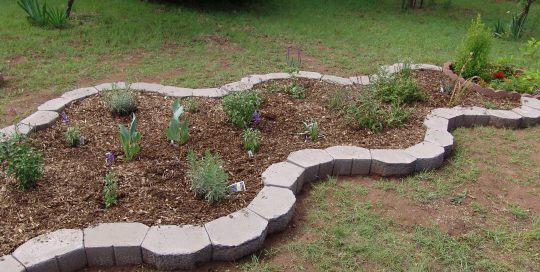
Firescaping 101
